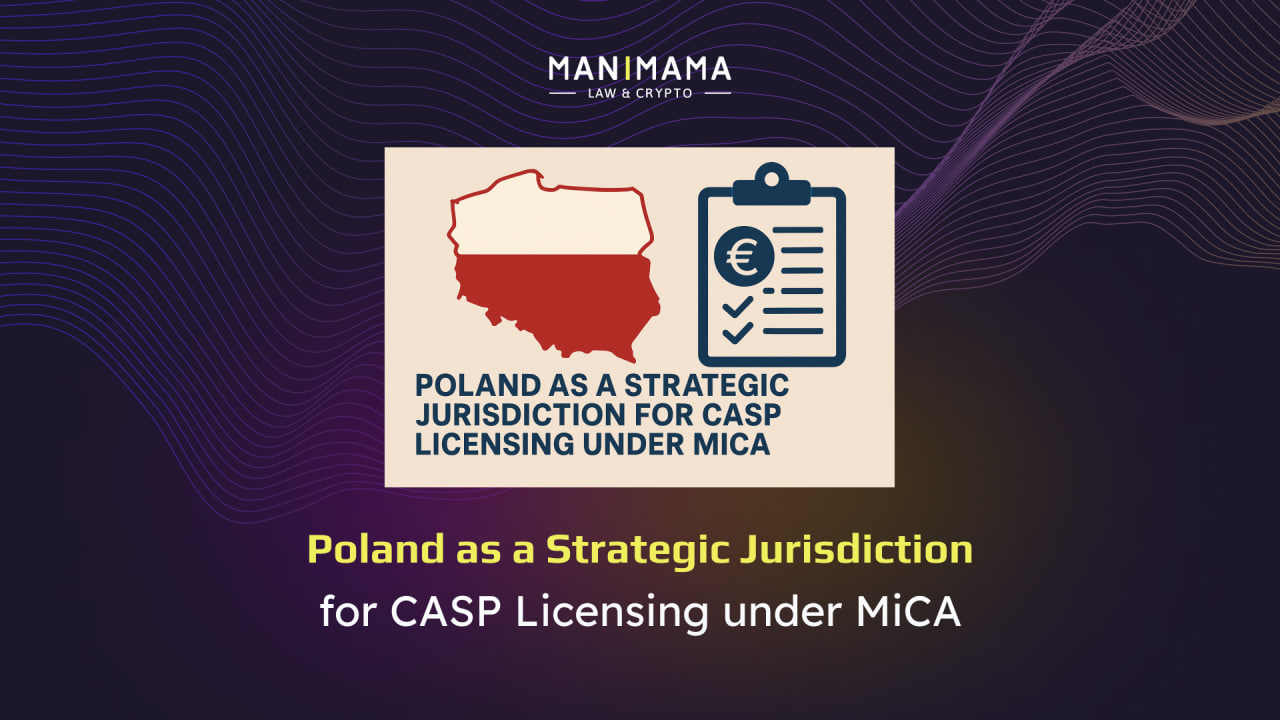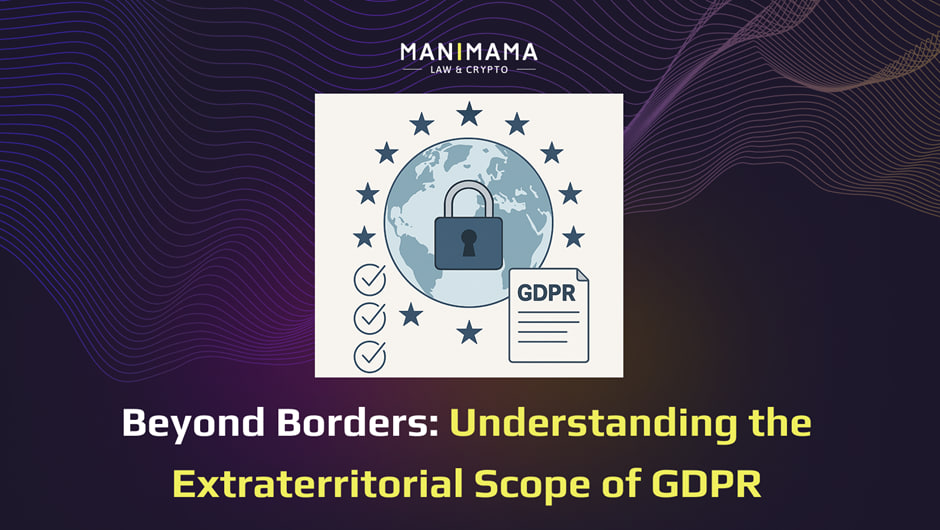Growing number of fraudulent activities made the government rethink the legislative shortcomings and to better address risks related to digital assets, as French law did not recognize crypto-currencies as financial instruments and they were left without proper supervision.
Contemporary regulation of digital assets in France
December / 30 / 2021
|
15 m. to read


Financial Markets Authority (hereinafter:- “AMF”) even initiated a blacklist of unauthorized companies and websites to increase awareness of consumers. The article analyzes the current state of the legislative regime initiated by the French government to address regulatory risks brought by cryptocurrencies.
Legislative framework
It is believed that for the cryptocurrency to meet the legal sense of currency, it should meet traditionally accepted economic functions of the money, such as: intermediary of exchanges, unit of account and store of value. Finance, general economy and budgetary monitoring committee of France in their report submitted to the National Assembly in January 2019, however claimed that cryptocurrencies cannot be assimilated to a currency, as they do not perform any of the aforementioned functions of traditional money. According to article L111-1 of the Monetary and Financial Code (hereinafter:- “CMF”), ‘the currency of France is the euro’, hence it is considered as the only legal tender currency in France.
In October 2017, the AMF promulgated a discussion paper on Initial Coin Offering. After an extensive consultation with experts and key stakeholders of the crypto market, it was decided to establish a special framework for ICOs and digital assets, instead of bringing them within the scope of other existing securities and monetary policies. Law on growth and transformation of enterprises, (d’Action pour la Croissance et la Transformation des Entreprises, hereinafter:- “PACTE law”), introduced on May 22, 2019, established a new regulatory framework for fundraising by issuing tokens and licensing digital asset service providers (hereinafter:- “PSAN”), and intended for facilitation of the growth of small and medium businesses in the sector. PACTE law also set out a legal concept in relation to classification of digital assets under article L54-10-1 of the CMF, specifically as:
‘any digital representation of a security which is not issued or guaranteed by a central bank or a public authority, which is not necessarily attached to legal tender and which does not have the legal status of a currency, but which is accepted as a medium of exchange and which can be transferred, stored or exchanged electronically’.
Introduced amendments to PACTE law also complemented – Statute No. 2015-559 of May 30, 2014 on crowdfunding, allowing the use of distributed ledger technologies for such operations, which became a new concept of investment under French law.
Token sale (ICO)
AMF defines initial coin offering (hereinafter:- “ICO”) as:
‘a fundraising operation by which a company in need of financing issues tokens, to which investors subscribe mainly with cryptocurrencies. These tokens can allow them to access, in the future, products or services of this company.’
The PACTE law created an optional regime governing the issuance of tokens for public offerings. In line with that, an issuing company may apply to obtain a visa of the AMF, which will be issued provided that issuers comply with following requirements:
- issuer of the tokens must be incorporated as a legal entity established or registered in France;
- provide a document containing all relevant information about the offer, financed project and the issuer;
- having safeguarding systems in place for monitoring the assets raised during the offering;
- adequate compliance system in with the rules of anti money laundering and combating terrorist financing (hereinafter:- “AML/CFT”).
Application files will be reviewed by AMF and recipients of the visa will be periodically listed in its website. ICO without the visa is legal, as it remains to be optional, yet it proves that AMF has verified that the information document for this offer (so called white paper) is complete and understandable for investors. It is also worth to note that:
- validity term of the visa is 6 months;
- issuance of the visa does not represent an inducement to participate in the token offer;
- AMF does not inspect the computer programs related with the offer;
- AMF does not check the information that can be distributed to investors after the token offer has been made.
The latest scheme brought by PACTE Act deems do not intimidate issuers who do not refer to AMF for visa issuance. Thus, it is deemed to be an opportunity to attract new players willing to comply for more legal certainty, and not as a protection of the owners or investors of crypto-actives in France.
AML requirements from Digital Asset Service Providers
To apply EU fifth AML directive into national legislation, PACTE law extended the categories of entities that must comply with AML/CFT norms:
- ICO issuers that obtained optional AMF visa;
- digital asset custodians;
- entities providing service of buying or selling virtual assets against legal (fiat) currencies;
- entities providing service of buying or digital assets against other digital assets;
- entities managing of digital asset trading platforms;
- licensed digital asset service providers.
Entities who are engaged in digital asset custody and buying and selling digital assets against fiat currencies must obtain AMF registration. Other categories of digital service providers can voluntarily apply for an authorisation and supervision under AMF. As per article L54-10-5 of the CMF, these entities must meet following compliance standards and have at all times:
- professional civil liability or equity insurance;
- an adequate internal control and security system;
- secure and resilient IT system;
- transparent policy and a system for managing conflicts of interest.
In the course of registration, AMF checks the integrity and competence of the director of the applicant and verifies the presence of AML/CFT procedures and issues a decision after consulting the Prudential Control and resolution authority.
On December 9, 2020, the government passed an ordinance No. 2020-1544 on strengthening the framework for the fight against money laundering and the financing of terrorism applicable to digital assets. The ordinance opposes the anonyimity of digital asset transactions by including PSANs in the list of entities prohibited from keeping anonymous accounts. Officials wish to identify all the users in order to fight against money laundering and the financing of terrorism. Consequently, it enforced a new rule that mandates any crypto market operator conducting crypto – crypto exchange (in particular exchange platforms between different crypto-assets) to obtain a registration from the AMF. Prior to the ordinance, digital asset custodians and crypto-fiat currency exchange service providers were subject to registration. Concisely, PSANs and crypto currency exchange platforms have been banned to hold anonymous accounts and to strengthen their Know Your Customer (KYC) verification procedures by:
- AML-CFT risk assessment (twofold prior inspection of the investor’s identity and informing relevant state authority about any suspicious transaction exceeding EUR 1,000;
- customer knowledge assessment;
- verification of beneficial owners;
- implementation process for freezing customer assets.
Tax treatment
Before 2019, capital gains from cryptocurrency transactions had been taxed at a high rate of up to 60 %, which made France the least attractive EU jurisdiction for investors. As a consequence, Act No. 2018-1317 of 28 December 2018 (the 2019 Budget Act) has been introduced to create a special regime to tax capital gains of individual incomes made from digital assets at a flat rate of 30%.
Article 150, VH bis of the Tax Code physical entities carrying out sales of digital assets for which the sum of the prices does not exceed EUR 305 during the tax year will be exempted from payment of income tax. The article also establishes that crypto to crypto transactions do not fall under the scope of capital gains taxation.
However, incomes from professional trading and mining are still within the scope of the general income taxation regime which varies depending on taxable income.
Based on EU Court of Justice decision onSkatteverket vs. David Hedqvist (2015) C-264/14 case exchanging cryptocurrencies into fiat currencies or vice versa is exempted from payment of value added tax. So, trading with cryptocurrencies is not subject to VAT in France.
Final remarks
Governor of the Bank of France, François Villeroy de Galhau, called for an immediate implementation of the EU wide regulatory framework on digital currencies and virtual assets, as he believes that the weakening international role of the euro might be at stake. Indeed, there are still some legislative loopholes which are exploited by some market players, especially through price manipulation. Pacte law has been a significant measure to establish a legal certainty of cryptocurrencies and is referred to as an appealing opportunity for new players in France. However, national laws fall short of protecting consumers and owners of crypto assets, thus they should still be supported at European level to ensure competency of legislative frameworks. The Council of EU finally reached an agreement on proposed ‘Regulation on Markets in Crypto Assets’ (MiCA) and the ‘Digital Operational Resilience Act, so it is highly possible that these will initiate a new regulatory framework across EU nations.
The content of this article is intended to provide a general guide to the subject matter, not to be considered as a legal consultation.
Other news

Poland as a Strategic Jurisdiction for CASP Licensing under MiCA
April / 23 / 2025
|
15 m. to read
Go To New



Cross-Border Data Transfers Under the GDPR: How to Stay Compliant When Working with International Partners
April / 22 / 2025
|
15 m. to read
Go To New



Сompany registration in the Ghana: Legal aspects and advice
April / 18 / 2025
|
15 m. to read
Go To New



Сompany registration in the Gambia: Legal aspects and advice
April / 18 / 2025
|
15 m. to read
Go To New



Beyond Borders: Understanding the Extraterritorial Scope of GDPR
April / 17 / 2025
|
15 m. to read
Go To New





Ready to start working with us? Fill out the form.
Share your vision. We'll create a legal framework tailored to bring it to life
Tokenization
Tokenization
Licensing
Incorporation
MiCA
